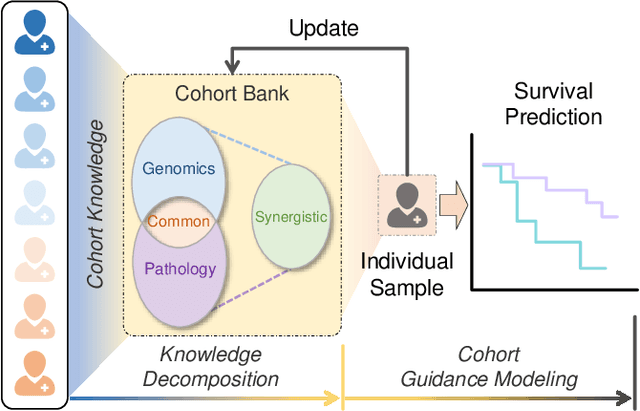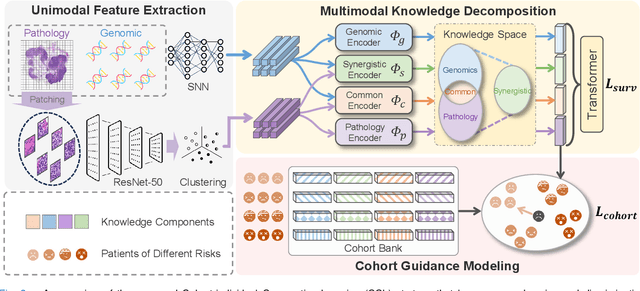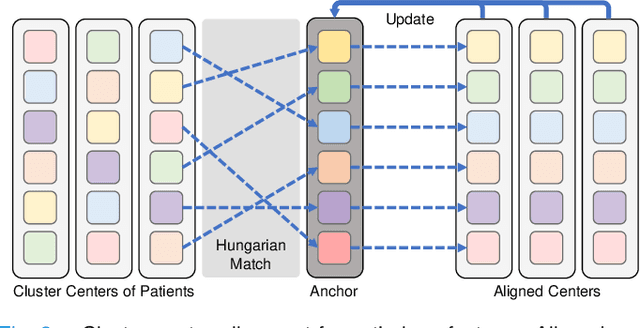Cohort-Individual Cooperative Learning for Multimodal Cancer Survival Analysis
Paper and Code
Apr 03, 2024



Recently, we have witnessed impressive achievements in cancer survival analysis by integrating multimodal data, e.g., pathology images and genomic profiles. However, the heterogeneity and high dimensionality of these modalities pose significant challenges for extracting discriminative representations while maintaining good generalization. In this paper, we propose a Cohort-individual Cooperative Learning (CCL) framework to advance cancer survival analysis by collaborating knowledge decomposition and cohort guidance. Specifically, first, we propose a Multimodal Knowledge Decomposition (MKD) module to explicitly decompose multimodal knowledge into four distinct components: redundancy, synergy and uniqueness of the two modalities. Such a comprehensive decomposition can enlighten the models to perceive easily overlooked yet important information, facilitating an effective multimodal fusion. Second, we propose a Cohort Guidance Modeling (CGM) to mitigate the risk of overfitting task-irrelevant information. It can promote a more comprehensive and robust understanding of the underlying multimodal data, while avoiding the pitfalls of overfitting and enhancing the generalization ability of the model. By cooperating the knowledge decomposition and cohort guidance methods, we develop a robust multimodal survival analysis model with enhanced discrimination and generalization abilities. Extensive experimental results on five cancer datasets demonstrate the effectiveness of our model in integrating multimodal data for survival analysis.
 Add to Chrome
Add to Chrome Add to Firefox
Add to Firefox Add to Edge
Add to Edge